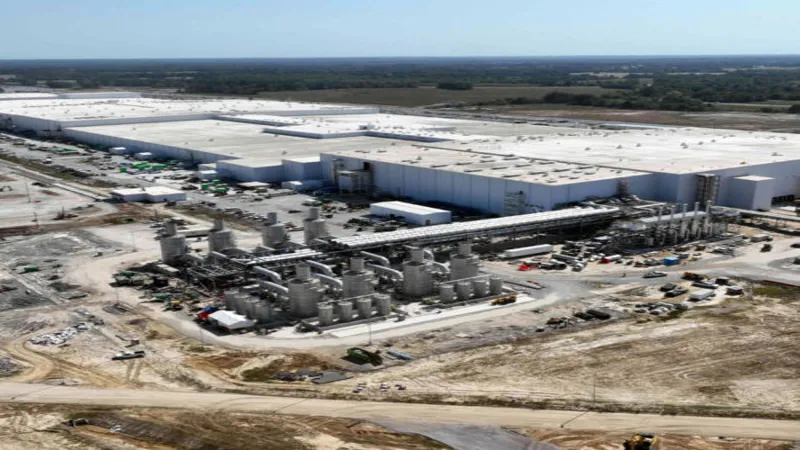
Electric Vehicle Battery Factories Set to Transform Industry
As the electric vehicle (EV) market accelerates into a transformative era, the United States is poised to witness a significant expansion in its battery manufacturing capabilities. This year, ten new electric vehicle battery factories are set to launch, backed by major players like Panasonic, Samsung, and Ford. Forecasts suggest that by 2025, the nation’s production capacity could skyrocket by 90%, reaching an impressive 421.5 gigawatt-hours annually. However, this promising growth comes amid a turbulent political landscape and challenges faced by emerging startups. As we delve into the dynamics of this burgeoning sector, we will explore the implications of federal policies, market uncertainties, and the future of EV battery production in America.
| Factory Name | Location | Capacity (GWh) | Jobs Created | Investment ($ Billion) | Status |
|---|---|---|---|---|---|
| LG and Honda | Jeffersonville, Ohio | 40 | 2,200 | 4.4 | Near completion, production starts late this year. |
The Rise of Electric Vehicle Battery Factories
In 2025, the United States is set to welcome ten new electric vehicle (EV) battery factories, marking a major leap forward in clean energy technology. These factories, backed by top companies like Panasonic and Ford, will significantly increase the country’s battery production capacity. By adding an impressive 421.5 gigawatt-hours per year, the growth represents a 90 percent boost from the previous year, indicating a strong commitment to the EV market and cleaner transportation options.
This surge in battery production is not just about numbers; it reflects a broader trend towards sustainability and innovation. With a growing demand for electric vehicles, these new factories are expected to create thousands of jobs and stimulate local economies. Communities can look forward to new opportunities as they become centers for cutting-edge technology, paving the way for a greener future.
Frequently Asked Questions
What is the significance of the new electric vehicle battery factories in the US?
Ten new factories are set to boost the US’s EV battery production to 421.5 gigawatt-hours by 2025, marking a 90% increase and supporting job creation in local economies.
Which companies are opening new battery factories in the US?
Major global companies like Panasonic, Samsung, and automakers such as Ford, Honda, and Toyota are among those establishing new battery manufacturing facilities across the United States.
What challenges is the US EV battery industry currently facing?
The industry faces challenges such as potential changes in federal policies under Trump that could affect EV demand, as well as canceled projects by startups due to financing issues.
How might Trump’s policies affect the EV battery market?
Trump’s administration could alter tax incentives for EV purchases, potentially reducing demand and affecting the profitability of new battery plants, which are crucial for the industry.
What is the impact of joint ventures between battery manufacturers and automakers?
Joint ventures enhance certainty around demand for battery production, benefiting from integrated supply chains, which can help stabilize the market amidst policy changes.
Why did some battery startups cancel their factory plans?
Startups like Kore Power and Freyr canceled plans mainly due to financial challenges in securing federal loans, impacting their ability to build new factories.
What are the long-term prospects for the US battery industry?
Despite current uncertainties, analysts believe the US battery industry is poised for growth, with new factories representing a crucial step towards increased production and job opportunities.
Summary
Ten new electric vehicle (EV) battery factories are set to open in the United States this year, including major plants from global leaders like Panasonic and Ford. This expansion could boost the nation’s battery production capacity by 90% by 2025. However, challenges arise as the Trump administration may reduce EV demand and two battery startups have canceled their factory plans. Despite concerns, analysts believe that the momentum for these plants is strong, especially since many are located in Republican states, making it politically challenging to retract job promises. The future of the EV battery industry remains uncertain but promising.